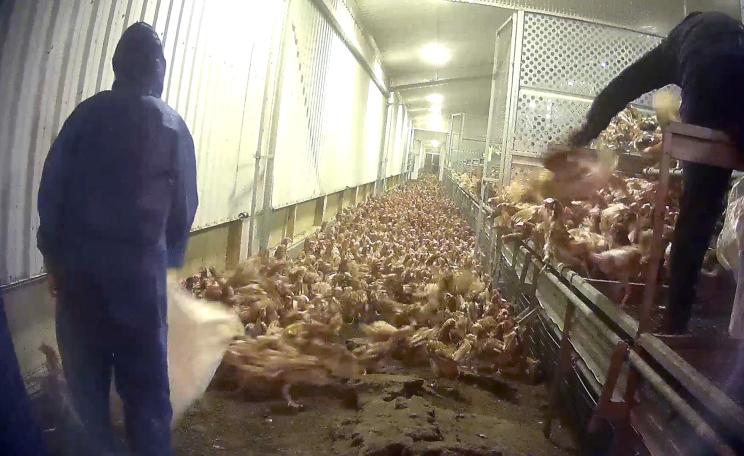Wheat harvest will start in the next few weeks, and we are asking bread companies to act now and put a stop to glyphosate as a pre-harvest desiccant in their supply chains
A letter calling on leading bread producers and supermarkets to cease stocking and supplying products which contain traces of the herbicide Glyphosate has been sent out by the Soil Association.
Glyphosate, more commonly known by its trade name Monsanto's Roundup, was found in March 2015 by the International Agency for Research on Cancer (IARC) to be "probably carcinogenic to humans".
However, despite these findings, in May 2016 a joint meeting of the Food and Agriculture Organisation of the United Nations, a panel of experts on pesticide residues in food and the environment and the World Health Organisation (WHO) Core Assessment Group on Pesticide Residues (JMPR) concluded that glyphosate is unlikely to pose a carcinogenic risk to humans from exposure through the diet, when focused on the occurrence of Non-Hodgkin Lymphoma.
With this conflicting research, use of the chemical remains controversial, but nonetheless the EU has approved its use after a three-year assessment.
The Soil Association is concerned that glyphosate is used on crops immediately before harvest, and subsequently makes its way into our food. Taking action against glyphosate use, they have launched the 'Not In Our Bread' Campaign, with Policy Director Peter Melchett writing to Tesco, Sainsbury's, Waitrose, Morrisons, ASDA, Co-op, M&S, Warburtons, Hovis, Braces Bakery, Allied Mills, The Federation of Bakers, and NABIM to ask that they refrain from stocking any flour that comes from wheat sprayed with glyphosate.
The letter was sent out on July 18, and a spokesperson for the Soil Association said: "Using glyphosate, and glyphosate-based products, as a pre-harvest treatment is fundamentally wrong, and we are calling for an end to it with our campaign. Wheat harvest will start in the next few weeks, and we are asking bread companies to act now and put a stop to glyphosate as a pre-harvest desiccant in their supply chains. The EU has just advised glyphosate use as a pre-harvest spray on food crops should be restricted - but it's up to individual member states to decide if they want to implement this or not."
According to the Soil Association glyphosate use in UK farming has increased by 400% in the last 20 years and it appears regularly in regular testing of British bread, with it showing in 30 per cent of samples tested by the Defra Expert Committee on Pesticide Residues in Food (PRiF).
Glyphosate is one of the world's most widely used broad-spectrum herbicides and accounts for around 25% of the global herbicide market. Roundup itself can be used as a garden weed-killer.
The EU made its decision on renewing glyphosate's licence through an authorisation procedure involving three partners: EFSA, the European Commission and Member States. EFSA's role is to carry out risk assessments of pesticides and to provide the European Commission and Member States with scientific support in the decision-making process. At any time the Commission can review approval of a pesticide and the EFSA continues its review of the Maximum Residue Levels (MRL) for glyphosate.
Wheat harvest will start in the next few weeks, and we are asking bread companies to act now and put a stop to glyphosate as a pre-harvest desiccant in their supply chains
Responding to the letter from The Soil Association, Gordon Polson, Director of The Federation of Bakers said: "All UK bakers take the safety of the food they produce very seriously.
"Glyphosate has been approved for use by the EU.
"The analysis of glyphosate in bread is carried out by the Pesticides Residues in Food (PRiF) Expert Committee on behalf of the Government. Where glyphosate was found in bread it was always well below the MRL and at a level which PRif considered would not have an effect on human health.
"The use of glyphosate is closely monitored and is only applied when necessary to minimise damage and loss of the crop.
"The Federation of Bakers endeavours to continue working closely with suppliers to ensure any incidence of residues remains low and will follow all developments with regards to the safety of pesticides, including glyphosate, to ensure the upmost safety to consumers."
Warburtons said as members of the Federation they also support this statement.
Marks & Spencer said they would send a detailed response to the Soil Association directly, adding: "We have always taken a leading stance on the control and use of pesticides with our farmers, growers and food suppliers, working closely with them on good agricultural practice. We have tested our bread and found no residues of glyphosate. When working with our suppliers on our approach to pesticides we will continue to review the EFSA work on pesticides and any new scientific evidence."
A Waitrose spokesperson said they would be engaging with the Soil Association, adding: "Leckford Estate - the Waitrose Farm - already has strict protocols in place around the use of glyphosates and it's never used there as a pre-harvest desiccant to dry out crops."
The US company Monsanto itself faces The Monsanto Tribunal, to be held in The Hague from October 12-14. The tribunal will assess allegations against the company including human and environmental damage caused by its products, including Roundup. Read more in our comment piece "Holding Monsanto to account: the People's Tribunal", by Heidi Chow.
Laura Briggs is an Ecologist news reporter







